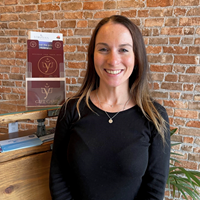Listening to Your Body
As babies, we are our true self and instinctively know what we need. In adulthood, we push ourselves to accommodate the rules and expectations of external influences, separating from our true needs in the process. We stop listening to the messages our bodies send us, and ignore signs such as stress, and fatigue which are telling us to slow down, to pause and reflect on our feelings.
There is constantly information moving through us which the body and mind need to process. They are interconnected, so the mind understands on a cellular level what is happening physically, while the body listens and responds to our thoughts and behaviour. Negative and stressful thoughts trigger fight-or-flight responses so if we are always on the go, there is a constant release of cortisol and adrenaline which can lead to physical ailments if habitual stress becomes too much.
The deep connection between the body and mind recognises that anything we are feeling means something. Every tight muscle, headache or shallow breath is there for a reason, providing clues to where we may be out of balance. If we ignore the signs or try to mask them with medication, eventually they will physically manifest elsewhere in the body.
Research in 2018 found that the intensity of emotions was directly linked with the intensity of mental and physical sensations, so the stronger the feeling is in your body, the stronger it is in your mind. In traumatic circumstances, emotions such as fear can be frozen, and numbness is experienced instead.
If you ever wondered why you feel physical sensations in your heart when experiencing love or grief, it is because the heart is the centre of love and emotion. Certain parts of the body are known to hold emotions which can explain common correlations, such as chest tightness when we are anxious. Trapped emotions can become stored in the unconscious, manifesting into back tension and poor posture. The shoulders are also thought to carry burdens and responsibilities which could explain why many complain of strain in these areas.
It can take time to develop an awareness and understanding to the mind-body communications. Taking a few moments throughout the day to check in with yourself is a good way to start.
Stop, close your eyes, and take a few deep breaths. Ask yourself ‘How do I feel right now?’.
Carry out a mindful body scan and pay attention to anything that shows up throughout the body. Tune in to where sensations are heightened and ask yourself what your body needs in that moment.
Gradually, as you begin to listen more to what your body is telling you, you will become resilient in making decisions beneficial for your physical and mental health, encouraging your intuition to deepen.
We don’t need to wait until we are in pain before we start to look after ourselves. Prevention is key in protecting ourselves against illness and it all begins with developing an awareness of how we are feeling.

